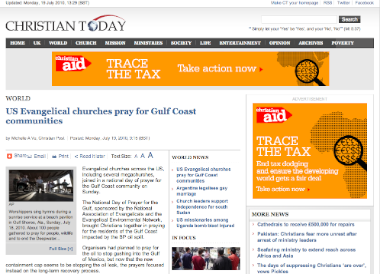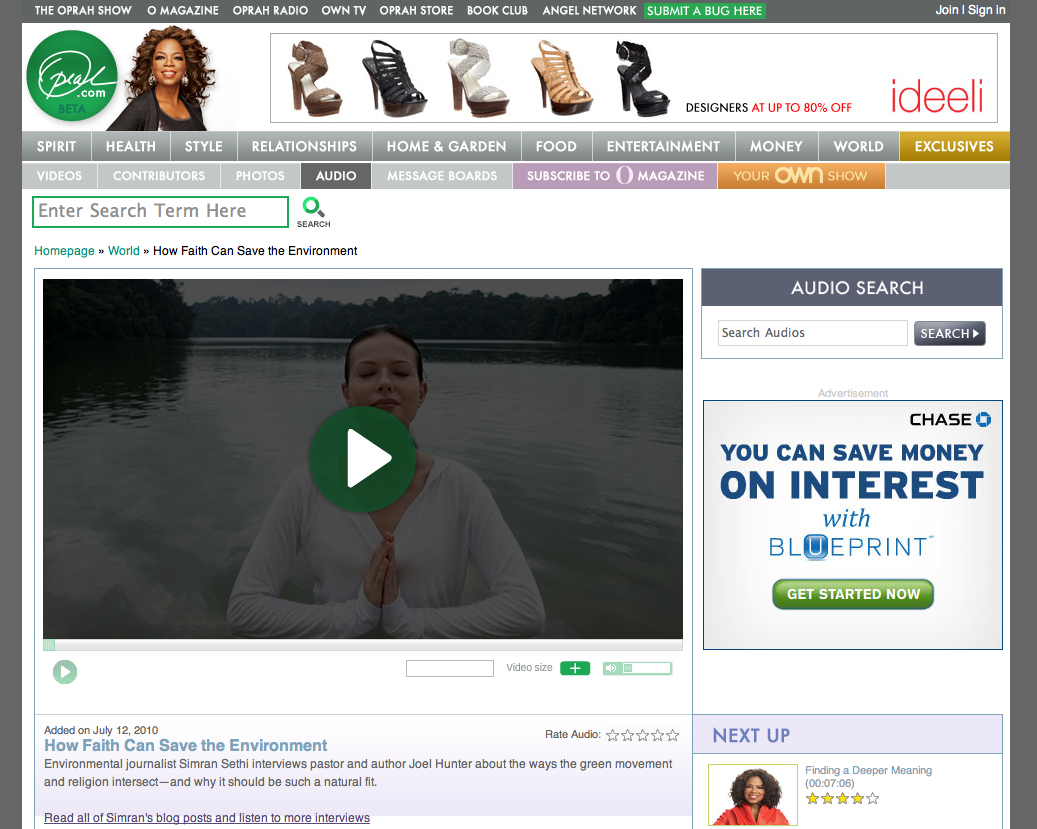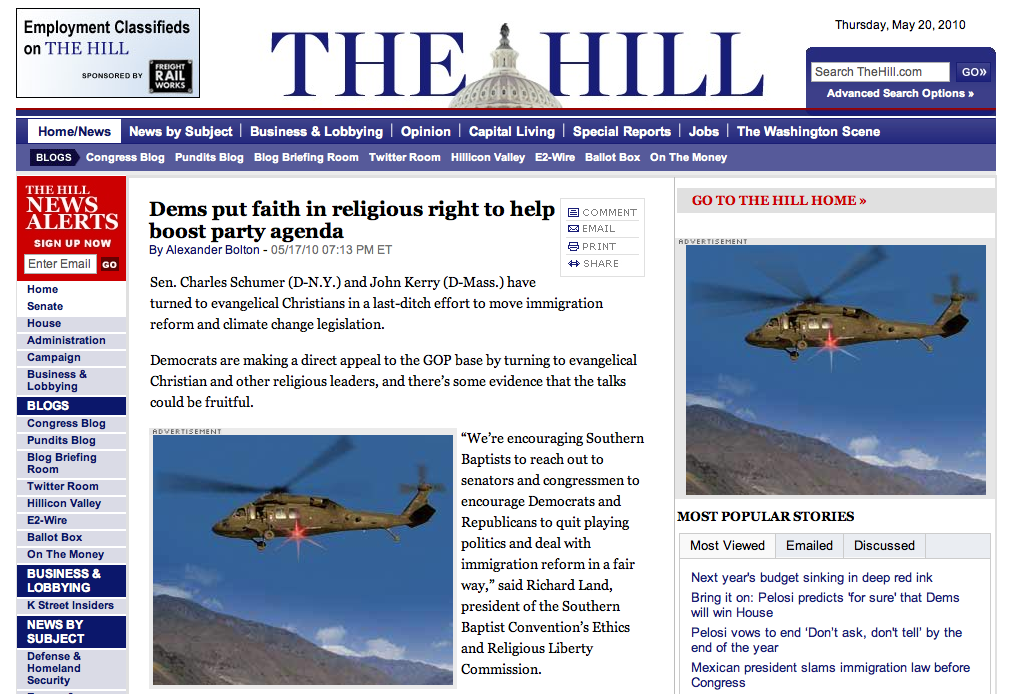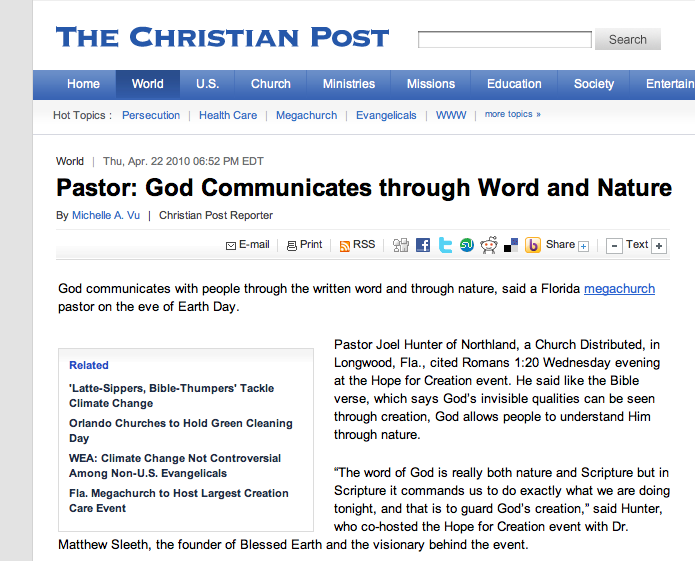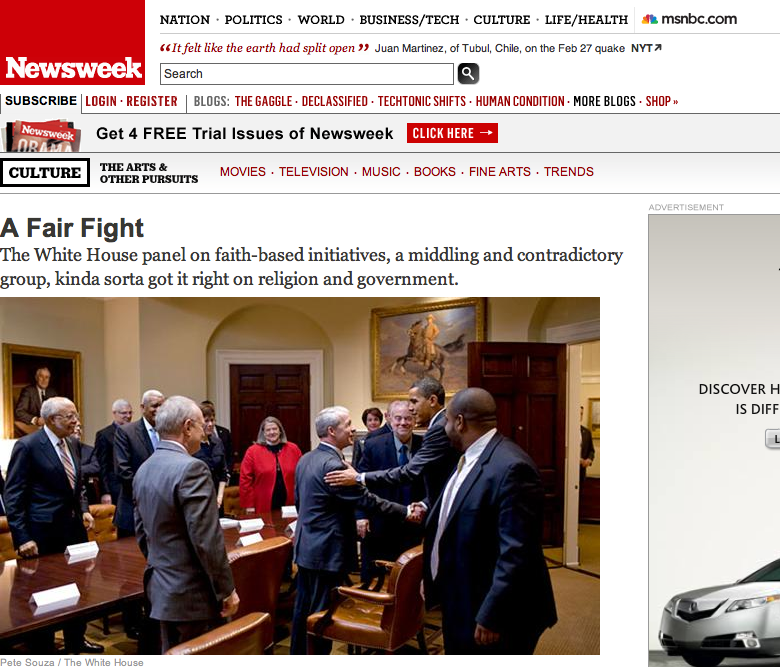Seasoned Pastors Reveal Mistakes, Regrets in Ministry
Over 40 "sages" offered younger leaders some insight as to what they would do differently in ministry if given the chance to do it over.
Fri, May. 21, 2010 Posted: 11:02 AM EDT
Over 40 "sages" offered younger leaders some insight as to what they would do differently in ministry if given the chance to do it over.
Some of the pieces of wisdom given Wednesday during a four-hour online event include: get a mentor, hire people who are smarter than you, and don't try to meet everyone's needs.
"If I did this one thing, I think it would have put me years ahead of where I am and the church years ahead," said Cal Jernigan, senior pastor of Central Christian Church in the Phoenix metropolitan area. "I wish I would have gotten a mentor."
Though Jernigan read plenty of books and attended conferences, he realized he was at a huge disadvantage by not having someone regularly speak into his life and even correct him if necessary.
He was fearful that if he approached a seasoned leader to spend time with him and teach him, he would be rejected.
"I made the mistake of assuming the answer would be 'no,'" he said during the "Sage" online event. "It's kind of like the kid at the junior high dance who just stand on the sidelines, just sure if you risk it they'd say 'no.'"
The multi-site church pastor assured younger leaders and those just starting out in ministry that in large part, pastors are more than willing to serve as mentors.
"Sage" was produced by the Leadership Network and was the third event of its kind in a series that began last fall. It featured some well-known and some less familiar pastors and ministry leaders, all of whom submitted brief pre-recorded videos of themselves talking about what they would do differently if they could go back or what they've learned in the decades that they've been serving God. Together, the speakers have more than 1,000 years of ministry experience.
Organizers of the event said they hope the answers given would save younger leaders years of frustration.
"If you've been involved in ministry for more than five minutes, I'm sure that there's something you would have done differently," said "Sage" producer Todd Rhoades. "Ministry is one of the hardest jobs in the world. Because of the extreme demands of ministry, few leaders are able to make it twenty, thirty, or forty-plus years in our vocation. Those who do have an incredible amount of wisdom to share."
Joel Hunter, senior pastor of Northland, A Church Distributed, in Orlando, Fla., offered a few minutes of advice on what could help others at the start of ministry.
"Make sure you always hire people who are smarter than you are because if you don't do that, all the work will come back to you," he said.
The tendency for people who are just starting out in ministry is to feel as if they have to be in control of everything or know everything that's going on, Hunter noted.
But he reminded young leaders, "This is what Christ said: 'I will build my church.' You don't have to build the church. Christ will build his church. And if you know everything that's going on in your ministry that means your ministry can only grow as large as your brain is."
Dennis Keating, pastor at Emmanuel Faith Community Church in Escondido, Calif., learned during his years in ministry that he can't play father to the world.
Every day, he would try to meet everyone's needs and work himself to exhaustion. He constantly felt guilty and depressed and his gages were soon pegged on empty.
He realized he had to begin to understand his limitations.
Keating now lives on the motto: "Just because the ministry calls doesn't mean that God calls."
Leadership Network, established in 1984, fosters church innovation and growth through strategies, programs, tools and resources consistent with its mission to identify, connect and help high-capacity Christian leaders multiply their impact.
Audrey Barrick
Christian Post Reporter

Over 40 "sages" offered younger leaders some insight as to what they would do differently in ministry if given the chance to do it over.
Some of the pieces of wisdom given Wednesday during a four-hour online event include: get a mentor, hire people who are smarter than you, and don't try to meet everyone's needs.
"If I did this one thing, I think it would have put me years ahead of where I am and the church years ahead," said Cal Jernigan, senior pastor of Central Christian Church in the Phoenix metropolitan area. "I wish I would have gotten a mentor."
Though Jernigan read plenty of books and attended conferences, he realized he was at a huge disadvantage by not having someone regularly speak into his life and even correct him if necessary.
He was fearful that if he approached a seasoned leader to spend time with him and teach him, he would be rejected.
"I made the mistake of assuming the answer would be 'no,'" he said during the "Sage" online event. "It's kind of like the kid at the junior high dance who just stand on the sidelines, just sure if you risk it they'd say 'no.'"
The multi-site church pastor assured younger leaders and those just starting out in ministry that in large part, pastors are more than willing to serve as mentors.
"Sage" was produced by the Leadership Network and was the third event of its kind in a series that began last fall. It featured some well-known and some less familiar pastors and ministry leaders, all of whom submitted brief pre-recorded videos of themselves talking about what they would do differently if they could go back or what they've learned in the decades that they've been serving God. Together, the speakers have more than 1,000 years of ministry experience.
Organizers of the event said they hope the answers given would save younger leaders years of frustration.
"If you've been involved in ministry for more than five minutes, I'm sure that there's something you would have done differently," said "Sage" producer Todd Rhoades. "Ministry is one of the hardest jobs in the world. Because of the extreme demands of ministry, few leaders are able to make it twenty, thirty, or forty-plus years in our vocation. Those who do have an incredible amount of wisdom to share."
Joel Hunter, senior pastor of Northland, A Church Distributed, in Orlando, Fla., offered a few minutes of advice on what could help others at the start of ministry.
"Make sure you always hire people who are smarter than you are because if you don't do that, all the work will come back to you," he said.
The tendency for people who are just starting out in ministry is to feel as if they have to be in control of everything or know everything that's going on, Hunter noted.
But he reminded young leaders, "This is what Christ said: 'I will build my church.' You don't have to build the church. Christ will build his church. And if you know everything that's going on in your ministry that means your ministry can only grow as large as your brain is."
Dennis Keating, pastor at Emmanuel Faith Community Church in Escondido, Calif., learned during his years in ministry that he can't play father to the world.
Every day, he would try to meet everyone's needs and work himself to exhaustion. He constantly felt guilty and depressed and his gages were soon pegged on empty.
He realized he had to begin to understand his limitations.
Keating now lives on the motto: "Just because the ministry calls doesn't mean that God calls."
Leadership Network, established in 1984, fosters church innovation and growth through strategies, programs, tools and resources consistent with its mission to identify, connect and help high-capacity Christian leaders multiply their impact.
Audrey Barrick, Christian Post Reporter
FIND THE ARTICLE AT: http://www.christianpost.com/article/20100521/seasoned-pastors-reveal-mistakes-regrets-in-ministry/index.html
